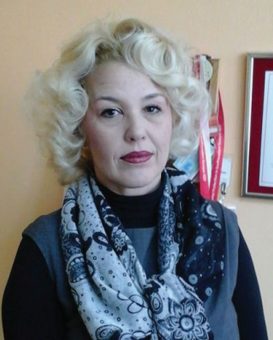
Last year in June a training organization for the training of Energy Managers and authorized energy advisors commenced its operation. The first participants have acquired necessary knowledge about legal framework of the Energy Management System and standard ISO 50001:2012. Law on Efficient Use of Energy (Official Gazette RS 25/2013) provides that there are organizations that can carry out trainings of Energy Managers. When the competition was announced in 2015, based on the submitted documentation on technical potentials and human resources, it was decided that the Faculty of Mechanical Engineering, University of Belgrade becomes the authorized organization.
The Centre is part of the Project “Assistance for the improvement of energy management system in all sectors of energy consumption in the Republic of Serbia”. This project, by the end of 2013, jointly implemented by the Ministry of Mining and Energy and the Japanese International Cooperation Agency (Japan International Cooperation Agency – JICA). At the opening of the Centre for Energy Efficiency in October 2016, the Minister of Mining, Mr. Aleksandar Antić, reminded that Serbia committed to reduce total energy consumption by nine percent by 20018. On this occasion, he emphasized that in recent years we have achieved savings of almost six percent. Regarding these innovations, we had the honor to talk to the Deputy Head of the Centre – professor and doctor of science, Mrs. Maja Todorović. The process is not easy, but according to our interlocutor, the right steps are being taken.
EP: On the occasion of the opening of Centre for Energy Efficiency one could hear that for Serbia energy savings is more significant than the investment in new energy facilities. How do you personally see the opening of this Centre?
Maja Todorović: The Faculty of Mechanical Engineering has always dealt with energy efficiency, especially the Departments whose main scientific fields closely relate to energy. I am personally engaged in the Department of Thermal Engineering, my narrower field is heating and air conditioning. As an educational institution, we previously had the established regional Centre for energy efficiency, which makes us a recognizable institution in this area. Perhaps it is for this reason that the Ministry decided for the Centre for Energy Managers and authorized energy advisors to be open here. We also responded to a call that the Ministry issued, and the call was related to granting authority for the training of Energy Managers.
The very Law on Efficient Use of Energy predicted the introduction of energy management systems. The system is organized based on the system which exists in Japan. So, the Government of Japan, has offered to our Ministry certain support in the introduction of this system, through the involvement of JICA, Japanese International Cooperation Agency. In line with that the Regulation has been adopted relating to the training itself. We have Energy Managers for Municipal Energy, Industrial Energy and energy efficiency in buildings.
EP: What are the exact responsibilities of the Energy Manager? Do these licenses need to be renewed and what kind of jobs can Energy Managers perform after this training?
Maja Todorović: Energy Manager should contribute to a synchronized, methodical approach in monitoring energy flows in his area. Specifically, they are required by law to monitor the consumption of large consumers; in industry, municipalities and buildings. They need to systematize data on energy flows and energy consumption appropriately. It is necessary to do an annual energy balance and inform the Ministry about it. Based on the balance, an annual program for the improvement of energy efficiency can be done. Energy Manager can, in his field or company, propose measures that will result in energy savings. This is the main task for the Energy Manager. On the other hand, the Ministry will have accurate information about energy consumption, considering all the measures that need to be introduced. Not only that total energy consumption is monitored, but it is also monitored the type of energy, its purpose and the energy sources that are being used.

EP: Serbia is at the very top on the list of countries that consume energy inefficiently. Can we expect
progress and change with this new institution of Energy Manager in real terms?
Maja Todorović: The process is not easy. It started back in 2009, when the Law on planning and construction was introduced in the field of energy efficiency in buildings. With the introduction of Article 4, the introduction of energy certificates for buildings became the obligation, or as we popularly call them: energy passports. When we observe the matter in this way, a lot of campaigns were done in this process. The emphasis was mostly on the residential sector, although the leader in this respect should be the public sector. Certainly, much has been done. There is also considerable support of the Ministry of Construction and Infrastructure, then the German Agency for International Cooperation and Development – GIZ. In the meantime, the studies on energy efficiency in buildings have been made. One such study was funded by the World Bank. Here, the biggest problem is to develop models for financing the projects for the improvement of energy efficiency.
A variety of modalities should be provided, so that different entities can find the one that suits them best. And of course, we should encourage the development of ESCO companies that provide energy services. This means that in the beginning you do not have to invest, ESCO company invests for you and they will charge for their services from the savings generated from the project they funded. These financing models are not developed at a sufficiently high level in our country and I think that the state should consider some incentives. For example, reduced duty rates for the equipment and devices that contribute to reduced energy consumption.
EP: You have already had three rounds of training since the establishment of the Centre. How many Energy Managers are there in Serbia currently and how do interested candidates apply for the training?
Maja Todorović: We conducted the first training in June, it was intended to Municipal Energy. Then we had 40 participants. In one training cycle, which lasts 6 days, we can have up to 40 participants. This is maximum because of the capacity for practical part of the training. In October, cycle for Municipal Energy was repeated and we had 3 cycles for Industry, and in February 2017 the first cycle for Energy Managers in building design and construction. For the Municipal Energy we had 70 participants, for industrial managers about 100 and there is a group of 40 students registered for energy managers in building design and construction. After the training, the participants are required to do independent work. To be more precise they must do a plan and program of energy efficiency which their mentor monitors. After this part, it is considered that they successfully completed the training and capable of taking the exam. After passing the exam, we pass on the results to the Ministry, after which candidates apply for a license in the Ministry. We will see if this license will have to be renewed.
When it comes to the registration of candidates, the Ministry held regular seminars informing those who are legal subjects to this system, about the organization of trainings. Currently, the Faculty of Mechanical Engineering is the only institution that has been authorized. We have on our website published calls for training, so the municipalities and interested companies can send candidates. The Law defined that large consumers are liable. For municipalities, the criterion is number of inhabitants and for the industrial plants the amount of energy consumed.
Interview by: Vesna Vukajlović
This text was originally published in our bulletin number 7 – Energy Efficiency, on April 1th.

